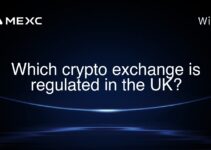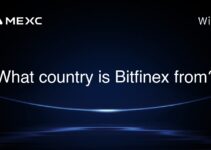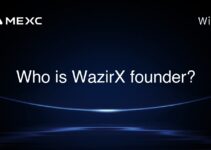Ethereum and ether, although closely related within the blockchain ecosystem, are not the same. Ethereum refers to a decentralized, open-source blockchain system that enables the creation of smart contracts and decentralized applications (dApps). Ether (ETH), on the other hand, is the native cryptocurrency of the Ethereum platform, used primarily as a medium of transaction and as a fuel for operating applications on the Ethereum network.
Importance of Understanding the Difference
For investors, traders, and users, distinguishing between Ethereum and ether is crucial for several reasons. Firstly, understanding the infrastructure (Ethereum) versus the asset (ether) can influence investment strategies. Ethereum’s technological advancements and updates can affect the value and utility of ether, and vice versa. Secondly, regulatory frameworks may differ for the platform and the cryptocurrency, impacting compliance and investment risks. Lastly, the operational use of ether, such as gas fees for transactions and smart contracts, relies on the robustness and scalability of the Ethereum network.
Real-World Examples and Practical Applications
Investment and Trading
As of 2025, Ethereum has undergone significant upgrades, notably the transition to Ethereum 2.0, which introduced proof-of-stake (PoS) consensus. This shift not only enhanced the network’s efficiency and scalability but also influenced ether’s dynamics by altering its issuance rate and staking rewards. Investors and traders need to monitor these changes to make informed decisions about when to buy, hold, or sell ether based on the anticipated impact of network upgrades on its price and transaction fees.
Decentralized Finance (DeFi)
Ethereum’s role as a platform for DeFi has been transformative, with billions of dollars locked in Ethereum-based DeFi contracts. Ether, being integral to these transactions as a form of payment for gas fees, gains intrinsic value from the volume of transactions and the complexity of operations on Ethereum. For instance, the introduction of Layer 2 scaling solutions has made DeFi on Ethereum more accessible by reducing gas costs, thereby potentially increasing the demand for ether.
Enterprise Adoption
Major corporations and consortia have adopted Ethereum for its robust decentralized ledger technology. An example includes the Enterprise Ethereum Alliance, which explores Ethereum’s applications in business contexts. Ether’s role in such scenarios can often be as a utility token within these private networks, facilitating transactions and operational functions.
Data and Statistics
As per the latest data from 2025, Ethereum handles over 1 million transactions daily, indicating its widespread use and stability as a platform. The value of ether has seen a significant correlation with these usage metrics. For instance, during periods of high network activity, particularly around major upgrades or successful DeFi launches, ether’s price has historically shown to spike. Furthermore, with the adoption of PoS, the number of ether staked has crossed 10 million ETH, underscoring confidence in the network’s future.
Conclusion and Key Takeaways
Understanding the distinction between Ethereum and ether is essential for anyone involved in the crypto space. Ethereum is the blockchain platform capable of executing smart contracts and supporting dApps, while ether is the cryptocurrency that powers and facilitates activities within this ecosystem. For investors and users, the technological evolution of Ethereum, such as the shift to Ethereum 2.0, directly impacts the utility and value of ether. As Ethereum continues to evolve and expand its capabilities, both the platform and its native cryptocurrency are likely to play increasingly significant roles in the broader digital economy.
Key takeaways include the importance of monitoring Ethereum’s technological updates for potential impacts on ether’s value, the role of ether in transaction fees and network operations, and the growing influence of Ethereum in sectors like DeFi and enterprise solutions. By staying informed about these aspects, stakeholders can better navigate their investments and usage of both Ethereum and ether.
Join MEXC and Get up to $10,000 Bonus!



